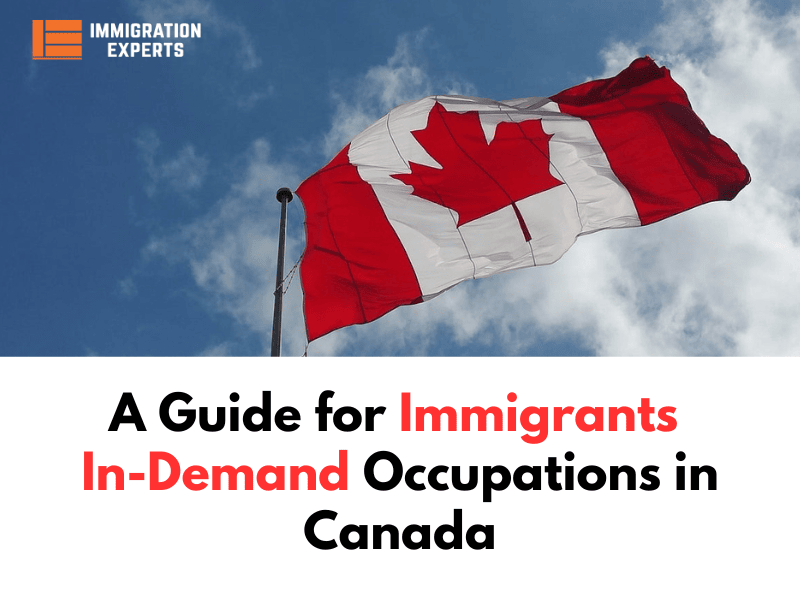051 8439995, 042 35911332

Canada is well-recognized for its robust and steady economic performance, and following the pandemic, the country has seen a spectacular recovery in several industries, many of which are witnessing rapid expansion.
A significant contributing factor to Canada’s sustained economic growth lies in its ambitious immigration targets. The Immigration Levels Plan for the period of 2023-2025 outlines the admission of 500,000 immigrants annually by the conclusion of 2025.
In a population exceeding 39,000,000 individuals, immigrants constitute nearly 25% of Canada’s populace. These newcomers typically possess the necessary skills and qualifications to address gaps in the national labor force resulting from a substantial number of retirements or a scarcity of suitable candidates.
The job market has seen several industries emerge as the leaders in terms of quick expansion and significant demand for particular skill sets.
Tech Professionals
A significant allocation of the federal budget for 2023 was dedicated to a $20 billion investment aimed at supporting the development of major clean electricity and clean growth infrastructure projects. This substantial investment is anticipated to generate a surge in demand within the technology sector.

Furthermore, the budget highlights that numerous careers in the clean technology manufacturing sector do not necessitate a university degree. It emphasizes that the average worker compensation in this sector reached $90,252 in 2021, surpassing Canada’s economy-wide average of $69,311.
The expansion of the artificial intelligence (AI) sector also contributes to Canada’s growing need for tech professionals. According to Invest in Canada, a government platform aimed at attracting investments in the country’s tech industry, Canada is home to 1,032 AI and machine learning companies. Additionally, the Global AI Index ranks Canada as the 4th most competitive nation worldwide in terms of AI implementation, innovation, and investment.
Migrating to Canada as Tech Professional
To meet the increasing demand for tech workers, Immigration Refugees and Citizenship Canada (IRCC) has introduced programs such as the Global Talent Stream. This initiative, which falls under the Temporary Foreign Workers Program, is specifically tailored to foster the expansion of Canada’s thriving tech industry. Its primary objective is to achieve a processing standard of two weeks after the submission of the final application by prospective employees.
Moreover, the Provincial Nominee Program conducts targeted draws to attract tech professionals. Various provinces have established dedicated tech streams to cater to this specific sector. These streams serve as pathways for tech workers to secure immigration opportunities in their desired provinces.
Demand for Healthcare Professionals in Canada
As Canadians are enjoying longer life spans, the demand for extended medical care has risen compared to previous generations. This increased need has prompted Canadian provinces to exert considerable effort in attracting healthcare professionals from overseas. At present, a substantial portion of Canada’s healthcare workforce consists of immigrants. Specifically, immigrants make up over 35% of the country’s physicians, 23% of registered nurses, and 39% of dentists.
Recent data from Statistics Canada, as of February 2023, reveals that the healthcare sector faces the highest number of job vacancies, reaching 143,800 unfilled positions. The nursing field, in particular, has been severely impacted during the pandemic, leading many nurses to require prolonged leave or even opt to leave the profession entirely.
To facilitate the transition of healthcare workers into permanent residents, Immigration Refugees and Citizenship Canada (IRCC) has implemented measures to simplify the process. This includes the removal of certain barriers that previously hindered physicians, who were considered self-employed, from qualifying for Express Entry—a program typically unavailable to self-employed occupations.
Canadian Immigration as a Healthcare Professional
A considerable number of healthcare professionals find their way to Canada through the Express Entry program, which specifically caters to highly skilled individuals in the Federal Skilled Worker Program, Canadian Experience Class, or Federal Skilled Trades Program.
Given that healthcare falls under the jurisdiction of individual provinces, most provinces have established pathways for healthcare workers through their Provincial Nominee Program (PNP). For instance, Alberta has recently introduced the Dedicated Healthcare Pathway as part of its Alberta Express Entry Stream.

Moreover, several provinces regularly conduct PNP draws that specifically target candidates in healthcare occupations. British Columbia, for example, conducts such draws nearly every week, while Ontario recently extended invitations to 2,349 healthcare candidates through its Human Capital Priorities stream.
Additionally, Canada has implemented two federal pilot programs specifically catering to caregivers for seniors and children. In a recent announcement, the government revealed a reduction in the required work experience in Canada for caregivers to qualify for permanent residence through these programs. The duration has been decreased from 24 months to 12 months, providing a more accessible pathway for caregivers to attain permanent residency.
Agricultural Professionals are In-Demand in Canada
With over 243,000 Canadians employed in Canada’s agriculture sector, there is a pressing need to address the job vacancy rate, which currently stands at more than 14,000 positions.
A study conducted by the Royal Bank of Canada indicates that in the coming years, specifically by 2033, approximately 40% of Canadian farm operators are expected to retire. The report emphasizes the urgency to counterbalance an imminent skills shortage by welcoming 30,000 permanent immigrants within the next decade. These immigrants would have the opportunity to establish their farms and greenhouses or take over existing ones, thereby mitigating the short-term crisis and ensuring the sector’s sustained productivity.
Canadian Immigration as Agricultural Professional
Canada (IRCC) has taken steps to extend the Agri-Food Pilot Program and eliminate occupational caps. The program now encompasses a range of eligible occupations, including:
- Retail butchers
- Industrial butchers
- Farm supervisors and specialized livestock workers
- Food processing laborers
- General farm workers
- Harvesting laborers
Similar to healthcare professionals agriculture workers also benefit from dedicated streams under select Provincial Nominee Programs (PNPs), tailoring the immigration process to their specific needs and qualifications.
